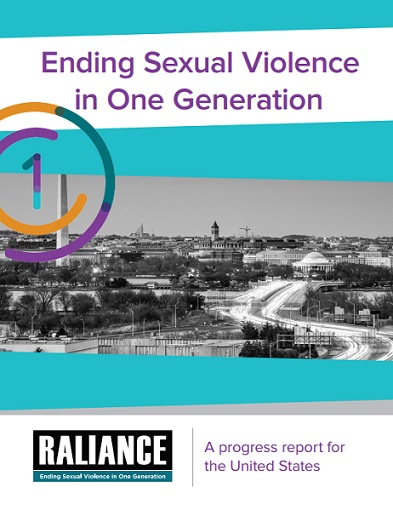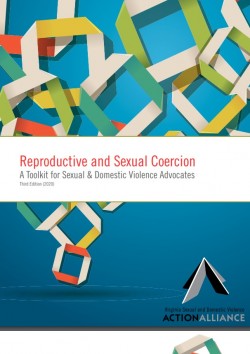Resources Library: Publications/Reports
Start a Search:
Protective Order Webinar Series
Protective Orders have been a lifesaving tool for survivors of intimate partner and sexual violence for many years in VA. However, a thorough understanding of whether or not a protective order is a useful tool for a particular survivor and the community structure for effective issuance and enforcement are what makes protective orders valuable tools in ensuring safety and accountability.
This 4 -part series on Protective Orders in Virginia reviewed and discussed the history of protective orders, what types are available and how survivors access them, what do advocates need to know to assist survivors in effective use of them, and finally, new firearms restrictions related to protective orders and how to build a community structure to ensure the most effective enforcement of them.
Session 1: History and Overview of Protective Orders
This webinar, facilitated by Ruth Micklem (VSDVAA) and Susheela Varky (VPLC), discusses the history of Protective Orders (PO’s) in Virginia; their purpose; and the role of advocates in PO cases.
Recording: https://youtu.be/2-l-U7AAriA
Presentation slides: http://bit.ly/POslides910
Handout 1 (History of Virginia POs): http://bit.ly/POhistory910
Handout 2 (Assessment tool): http://bit.ly/POassmt910
Session 2: Nuts and Bolts of PO’s
Caitlin Bradley (VSDVAA) covers the mechanics of PO’s - each type of PO; reviews the forms used for requesting and modifying PO’s; reviews the types of relief sought in PO’s; and discusses preparing survivors for court.
Recording: https://youtu.be/woIG4KjHmiQ
Presentation slides: https://bit.ly/POseries2slides
Session 3: Real-World Application of PO’s
Susheela Varky facilitates a panel-style discussion about the enforcement and real-world application of PO’s from the perspective of Legal Aid attorneys who are practicing on the ground. Participants were invited to submit questions beforehand and panelists shared real-world experience and perspective on PO cases, especially during COVID-19. Panelists included:
a. Sherron Ashby, Domestic Violence Attorney, Blue Ridge Legal Services (BRLS)
b. Nora Mahoney, Family Law Practice Group Chair, Legal Services of Northern Virginia (LSNV)
c. Jamesa Parker, Staff Attorney, Legal Aid Society of Eastern Virginia (LASEVA)
Recording: https://youtu.be/tZrogP_m_OE
Presentation slides: http://bit.ly/POseriesPPT3
Handout (VAWA Compliant Release Form): https://bit.ly/POSeriesVAWARelease
Session 4: Protective Orders and Firearms
Ruth Micklem discusses special considerations when firearms are involved. This webinar covered new legislation regarding firearms; safety considerations regarding firearms; and a discussion around community responses to firearms and PO’s.
Recording: https://youtu.be/ko8t7X1tnTQ
Presentation slides: http://bit.ly/POseriesPPT4
Race to Lead: Women of Color in the Nonprofit Sector
This report reveals that women of color encounter systemic obstacles to their advancement over and above the barriers faced by white women and men of color. Education and training are not the solution—women of color with high levels of education are more likely to be in administrative roles and are more likely to report frustrations about inadequate and inequitable salaries. BMP’s call to action focuses on systems change, organizational change, and individual support for women of color in the sector.
Raliance Report: Ending Sexual Violence in One Generation
 This report analyzes progress in the movement to end sexual violence and how it is shaping public conversation and, ultimately, our culture in how we address this important societal issue. Although much work remains to be done, significant accomplishments have been made and additional positive changes are underway.
This report analyzes progress in the movement to end sexual violence and how it is shaping public conversation and, ultimately, our culture in how we address this important societal issue. Although much work remains to be done, significant accomplishments have been made and additional positive changes are underway.
Raliance is a collaborative initiative dedicated to ending sexual violence in one generation. Composed of three top sexual violence prevention organizations – the National Sexual Violence Resource Center (NSVRC), the California Coalition Against Sexual Assault (CALCASA) - PreventConnect and the National Alliance to End Sexual Violence (NAESV) – Raliance serves as the central hub for effective allocation and distribution of programmatic funding in sexual violence prevention and as the go-to resource for policymakers, advocates, service providers and the media. Raliance is funded through a $10 million multiyear commitment from the National Football League. The name was inspired by the entity’s intent to rally engagement from stakeholders and align goals and resources behind its overarching mission of putting a stop to sexual violence once and for all. Learn more at Raliance.org.
Reachable: Data collection methods for sexual orientation and gender identity
In the past few years, researchers have begun developing new methods to measure sexual orientation and gender identity. Sexual and gender minorities have often been classified as "hard-to-reach" populations. However, recent developments in data collection methods demonstrate the increasing number of research methodologies available to those seeking a greater understanding of the lived realities of sexual and gender monorities. This report highlights some examples of data collection methods and presents examples of their use around the world.
The audience for this paper is non-researchers who seek a basic understanding of data collection methods regarding sexual orientation and gender identity. This paper is not a review of data collection. Rather it provides a small number of examples of data collection efforts.
Reproductive and Sexual Coercion: A Toolkit for Sexual & Domestic Violence Advocates

The Virginia Sexual and Domestic Violence Action Alliance seeks to build local sexual and domestic violence agencies’ capacity to identify reproductive and sexual coercion. This includes: implementing screening for reproductive and sexual coercion, implementing policies and procedures that address reproductive and sexual coercion, fostering partnerships with family planning and reproductive health providers, and doing the above-mentioned work through a reproductive justice framework or lens.
The goal of this toolkit is to help begin conversations and implement new or clarify existing policies within your agency: What is reproductive and sexual coercion? Why is a reproductive justice framework necessary? How can we best support survivors of sexual and intimate partner violence with a better understanding of reproductive and sexual coercion? What are sample policies and procedures my agency can utilize? Who in my community can I collaborate with on this work? We hope this resource provides some answers to these questions while also guiding and supporting further learning on these topics to best support the specific needs of your community.

